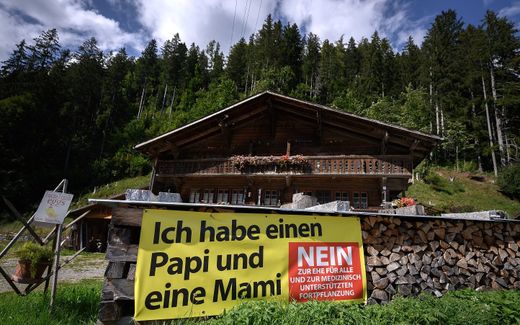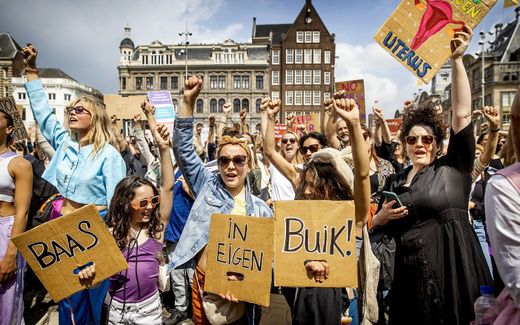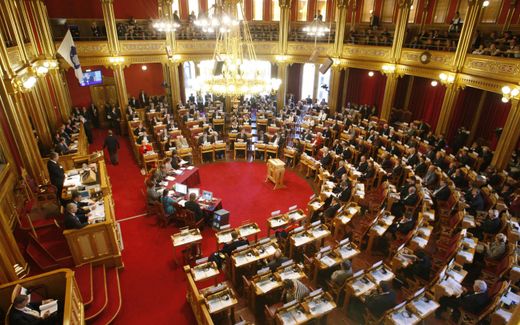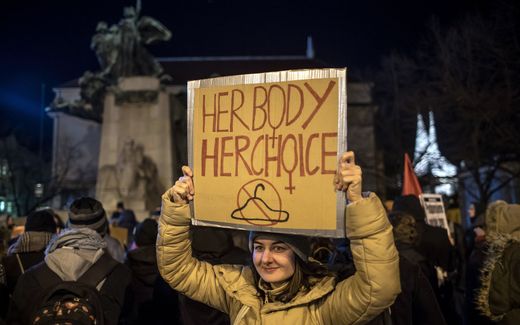Evert’s comment: What is behind the debate about abortion in the Constitution?
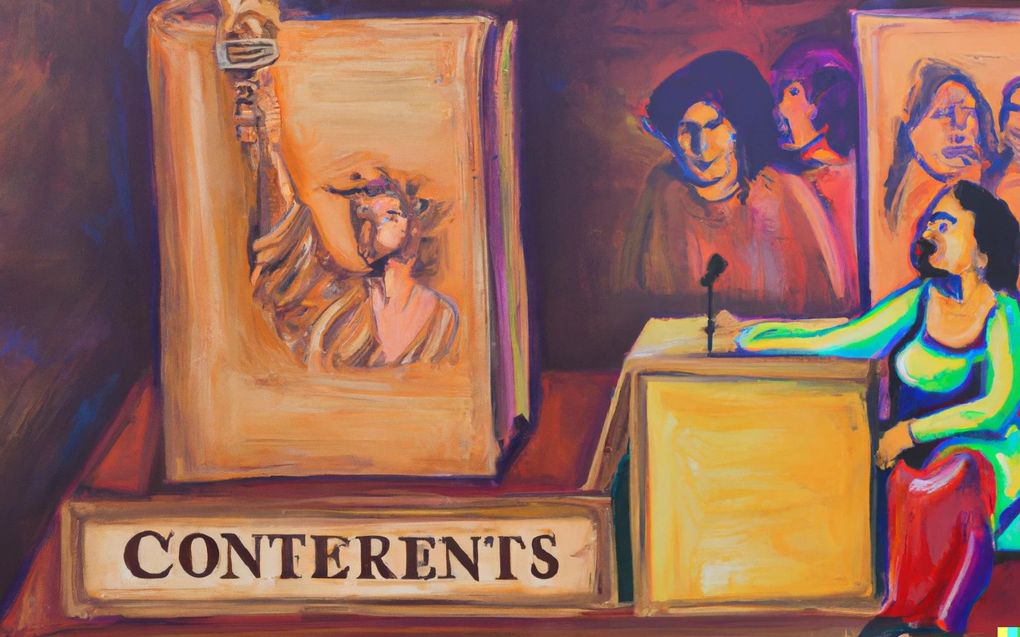
After the US Supreme Court overturned the right to abortion from 1973, there is a debate in Europe about whether abortion should be part of the fundamental laws. Picture Dall-E/CNE
European Union
Should the right to abortion be in the Constitution? Several European countries debate this question. Another view on this issue is the protection of the weakest in this discussion; the unborn. It could be argued that, at least, that is civilised too.
It was quite a shock that Friday afternoon in June last year. The US Supreme Court overturned the federal right to abortion. At that moment, I intuitively knew this would influence Europe’s climate. I wrote that in a short report on CNE.
Already in January last year, months before the US decision, French President Macron pleaded in the European Parliament for inclusion of abortion in the EU Charter of Fundamental Rights. Later, he stimulated the political debate in Paris to change the French Constitution.
Belgium
Not many countries followed, but some did, like Belgium. Neither in France nor Belgium they have taken the final decision yet. But at least in France, there seems to be a real chance for inclusion of abortion in the Constitution.

Last week, the Swedish coalition announced the need for the termination of pregnancy in the fundamental law. The four party leaders published an op-ed article in which they explained their position. A constitution should protect the rights of the individual, they say. “Protecting the right to abortion in the constitution thus goes hand in hand with, for example, the protection of the rule of law, of democracy and independent courts.”
For 50 years already, abortion has been a “defining part” of Sweden’s values, the leaders say. “The state must guarantee all women effective, safe and equal access to the right to terminate a pregnancy voluntarily.”
Remarkable is that also the Christian Democratic Health Minister, Acko Ankarberg Johansson, signed the article. Until recently, the KD party was openly pro-life, and the party programme still pleads for the right of life in the Constitution.
In Norway, the Liberal opposition campaigned for abortion in the Constitution last week. But it is not expected that they will succeed.
Fear
A natural question is why constitutional protection of abortion is necessary. A commentator in Sweden rightly said that few rights are so safe as the right to abortion. Most media houses –national and international– are very keen to protect women’s rights, as many NGOs in human rights.
Politically, there is no real threat against abortion. In Europe, there are almost no parliaments in which pro-life parties have a solid position. In Poland and Malta, the termination of pregnancy is forbidden. Hungary has introduced a heartbeat clause, but everybody who knows about the situation there knows that Budapest is far from a pro-life country.
The only answer –I guess– why people campaign for a constitutional change is fear. Many people are afraid of a change in the situation, like in the United States. But they forget that in the US, even in 1973, it was clear that Roe vs Wade was quite a weak decision from a legal point of view. Sooner or later, this had to be overturned. That situation is not comparable with Europe.

Another factor behind to idea that abortion should be constitutional is the drive for de-legitimisation of the opposition. It is remarkable that even in a democracy, people with a firm conviction find it challenging to accept that other people have opposing views. You can silence the other by establishing your point in the Constitution. Because every decent person should be behind freedom of speech, the rule of law, and then also behind the right to abortion – that’s self-evident. It is, in a way over-powering the opposition.
Law of the jungle
A constitution is meant to protect the right of the weak against an almighty state. In many countries, women are vulnerable indeed. But you can find something more vulnerable, namely the unborn child. It is very easy to oversee this individual, but it is no shame to respect this as a person. To overrule this person is the law of the jungle, where the strongest has all the rights.
Another function of a fundamental law is to protect human rights in general, not only the rights of certain groups. Of course, women have rights, but the same applies to (unborn) children. To prioritise one group above the others is an abuse of constitutional law.
In a civilised country, using the Constitution to protect all of us should be an honour. Let’s hope European countries will be an example of this.
Related Articles



